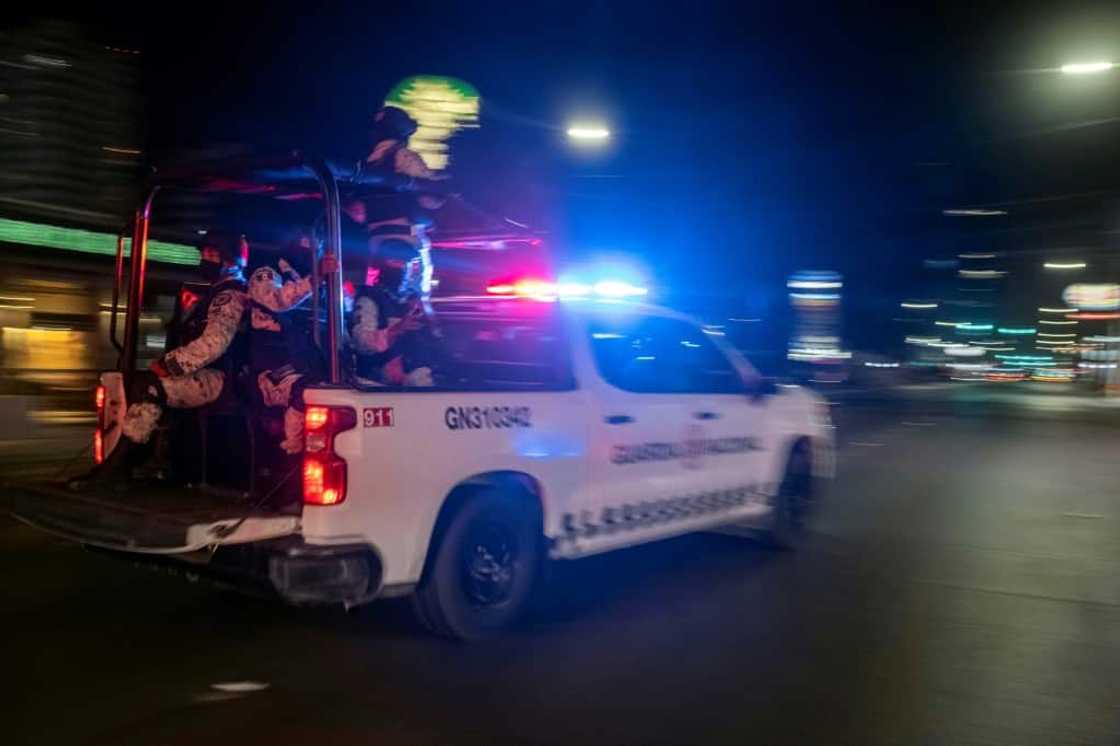Mexican lawmakers approve contentious security reform

Source: AFP
New feature: Check out news exactly for YOU ➡️ find “Recommended for you” block and enjoy!
Mexican lawmakers on Friday approved a plan to put the National Guard under military control -- a move that critics say hands too much power to the armed forces.
President Andres Manuel Lopez Obrador created the new security force in 2019 with a civilian command to replace federal police accused of corruption and human rights violations.
His reform putting the National Guard under the defense ministry's control was passed in the Senate by 71 votes in favor and 51 against, having already been approved by the lower house of Congress.
"The National Guard must take care not to make the same mistake as the so-called Federal Preventive Police, which became rotten and was a school for training corrupt officials," the president said Friday.
Before coming to power in 2018, Lopez Obrador had vowed to send the military back to the barracks.
But under his presidency, the armed forces have kept their role in tackling cartel-related violence and even gained more responsibility, including control of ports and customs and major infrastructure projects.
PAY ATTENTION: Follow Briefly News on Twitter and never miss the hottest topics! Find us at @brieflyza!
The National Guard has 115,000 members, mostly soldiers.
The ruling party argues that the military enjoys strong support and is less likely to be infiltrated by organized crime than other branches of the security forces.
Lopez Obrador's opponents and human rights groups are alarmed by what Amnesty International has called "the process of militarization of public security in Mexico."
UN concern
Acting UN High Commissioner for Human Rights Nada Al-Nashif said the reforms "effectively leave Mexico without a federal civilian police force, further cementing the already prominent role of the armed forces in public security in Mexico."
The military's increased role over the past 16 years had led to more allegations of human rights violations by law enforcement and the armed forces, and no sustainable reduction in crime, she noted.
"I call on Mexican authorities to strengthen civilian oversight in the security sector in line with human rights standards," Al-Nashif said.
More than 340,000 people have been killed in a spiral of bloodshed since the government of then-president Felipe Calderon deployed the army to fight drug cartels in 2006.
"Experience shows that today Mexico is more dangerous than 16 years ago when it was decided that the military should take to the streets," Amnesty said.
"There has been an increase in forced disappearances, arbitrary arrests, physical, psychological and even sexual torture," it added.
Lopez Obrador's opponents are expected to challenge the reform in the Supreme Court.
The government "tricked Mexicans by promising that the military would return to the barracks," said Humberto Aguilar, a legislator with the opposition National Action Party.
Lopez Obrador said this week he had changed his mind about the army's role in fighting crime after realizing the extent of the problem.
New feature: check out news exactly for YOU ➡️ find "Recommended for you" block and enjoy!
Source: AFP

